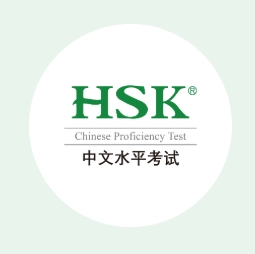Hsk Preparation Past Exams Vocabulary

Preparing for the HSK exam can feel overwhelming, with tight time limits and various question types. Based on experience, one of the most effective strategies is to practice with past exam papers while memorizing the core vocabulary for your target level. This approach not only helps you get familiar with the exam format but also allows you to focus on improving specific skills, making your preparation much more efficient.
Practice with Past Exams: Master the Pace
Using past HSK papers or mock exams can help you:
- Control your answering speed and avoid panicking during the test
- Identify weak areas and focus on improving them
- Get familiar with question types, reducing surprises on test day
Remember to time yourself while practicing and check your answers afterward. For listening sections—especially Part 1—practicing past papers helps you find the best approach for yourself and improves your ability to catch important details in conversations.
Reading Skills: Speed and Comprehension
Many students lose points in the reading section because their reading speed is too slow. To improve:
- Read more articles to enhance comprehension and reading fluency
- Practice with texts from mock exams and use flashcards or apps (like DuShu) to learn vocabulary
- Learn to spot keywords in questions to quickly find the correct answers
Writing Skills: Understand Length and Question Types
The writing section appears from HSK Level 3 onward. Tips for preparation:
- Identify the types of writing you are comfortable with
- Estimate how many sentences you need to meet the word count requirement
- Avoid exceeding the word count, as longer writing may lead to more errors
If your handwriting is slow but you can recognize Chinese characters and know their pinyin, you can opt for the computer-based exam, reducing writing pressure and allowing you to focus on content.
Vocabulary Mastery: Learn Words Through Practice
Memorizing 600 words alone can be tedious. A more effective approach is:
- Learn words through practice, discovering them in real exam questions
- Review vocabulary lists after completing past papers to fill in gaps
This method helps you retain words better and understand how they are used in the exam context.
Free Resources
- Platforms like Coursera offer free HSK courses, including HSK4
- These courses not only review vocabulary systematically but also explain the exam structure
- Knowing question types is crucial—for example, some fill-in-the-blank questions deduct points if you write characters in the blank instead of selecting options
Quick Tips Recap
- Practice past papers (from 2013 onwards)
- Focus on official past papers rather than online “practice” exams
- Learn vocabulary through exercises rather than memorizing lists in isolation
- Start with lower HSK levels or go straight for your target level depending on your foundation
Most people preparing for HSK3 find that practicing past papers and building vocabulary has a significant impact. With the right approach, HSK isn’t as difficult as it seems. For higher levels, focus on a solid foundation first, then gradually improve. By combining past papers, timed practice, and targeted vocabulary study, you’ll steadily enhance your listening, speaking, reading, and writing skills. Master the method, practice consistently, and your HSK goals will be within reach!